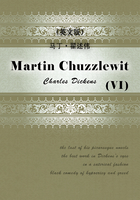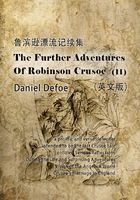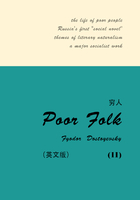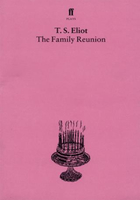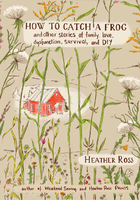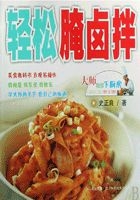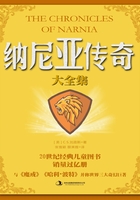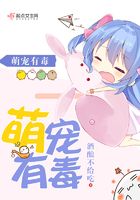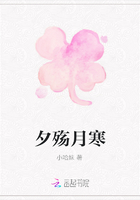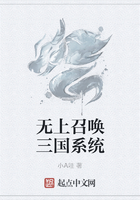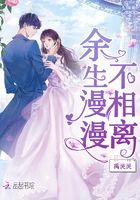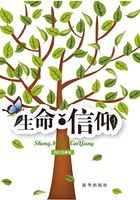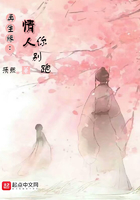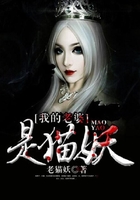I was raised on science as other people are raised on God, or gods, or the crocodile.
If you took aim at New Guinea and shot an arrow up through the globe, it might come out the other side at the village of Grantchester, on the outskirts of Cambridge, England. The house I grew up in there, Hemsley House, had been in the possession of Bankson scientists for three generations, its every desktop, drawer, and wardrobe stuffed with science's remnants: spyglasses, test tubes, finger scales, pocket magnifiers, loupes, compasses, and a brass telescope; boxes of glass slides and ento pins, geodes, fossils, bones, teeth, petrified wood, framed beetles and butterflies, and thousands of loose insect carcasses that turned to powder upon contact.
My father read zoology in St. John's College at Cambridge and became a fellow and steward there as was expected. He and my mother met in 1897, married that June, and had three boys three years apart: John then Martin then me.
My father had a big moustache, which often hid a small smile. I didn't understand his humor until I was grown and he had lost it, and took him very much at his word, which amused him, too. He was interested, for my entire childhood, in eggs. He incubated them first in Nanny's room then, when she complained, out in a shed. When they were ready he'd pick up each egg, write down the number of the pen, hen, and date of laying, then pick off the shell and study every detail of the embryo. He bred mice, pigeons, guinea pigs, goats, and rabbits; he grew and studied snapdragons and peas. He never lost his passion for Mendel. He believed there was a missing piece to Darwin's theories, as did Darwin himself, for there had to be an explanation of how phenotypes were transferred from one generation to the next. His concept of genetics began with an image of a wave or a vibration. His career-piebald as it was, sometimes pariah, sometimes hero-was the result of his curiosity, his interrogative nature. He was an apostle of science, of the pursuit of questions and answers, and he expected his sons to be apostles, too.
By the time I reached New Guinea in 1931, when I was twenty-seven, my mother and I were the only remaining members of our family, and she had become a great psychological burden to me, both needy and despotic, a tyrant who seemed not to know what she wanted for or from her last remaining subject. But she had not always been so. In my youth I remember her as soft and sweet and, though I was the last of the lot, young. I remember her deferring to my father in all instances, waiting for his word on one matter or the other, unable to give us boys answers to the most benign of questions: Could we bring the spiders in the house if they were in jars? Could we spread jam on the rock to watch the slave-maker ants try and transport it? We had a special bond because she did not want me to grow up and I did not want to grow up either. My brothers didn't make it look easy. John agreed to everything my father said, and Martin next to nothing. Neither road looked all that sunny to me, so I was happy to sprawl in my mother's lap for a good long time.
Our visit to my father's sister, Aunt Dottie, in the summer of 1910 is the first sustained memory I have. She was one of our many maiden aunts, and the most interesting to me. She had an exquisite beetle collection, all pinned and framed and labeled in her copperplate, squares and squares of them, laid out on velvet. Other women had jewelry; Aunt Dottie had beetles in every color and shape, all found in the New Forest, which was ten miles from her house. It was to the New Forest we would go every day with her in our gumboots and our buckets knocking together. There was a pond she liked, a good hour's walk in, and she'd be the first to march straight in it, the mud sometimes deeper than her wellies, and more than once we had to pull her out, all three of us in a line-me at the end on dry ground-and laughing too hard to be of any use, but Aunt Dottie would play it up, pretending to be stuck and sinking and then allowing us to slowly bring her up and out of the water. She always had the most stunning creatures in her net-a natterjack toad, a great-crested newt, a swallowtail butterfly-and could only be rivaled occasionally by John, who had more patience than Martin or me with our scoopfuls of tadpoles. That is where my mind goes when I think of John, twelve years old, wading into a steaming, buzzing pond in the New Forest on a hot July day, bucket in one hand, net in the other, his eyes scouring the filmy surface. We got a letter after he died from a fellow officer who said John treated the war like a good long field excursion. 'I do not mean to imply that he was not focused when he needed to be; he was, as I'm sure you have learnt from his commanding officers, an exceptionally courageous and thoughtful soldier. But while his comrades were inclined to complain about living in a ten-foot ditch, John would let out a jubilant yelp, having found the fossil of a Pliocene mollusk or spied a rare species of falcon flying overhead. He had a great passion for this earth, and while he left it and us far too soon, I am certain he is home.' My mother did not like this letter or its suggestion that John was 'home' when his body was blown to bits over a Belgian farm, but I took comfort in it. There was little comfort after John's death, and I chose to take it where I could find it.
John had the most potential to fulfill my father's wishes for us. He was a passionate naturalist. His indentification of an extremely rare caterpillar when he was fifteen made it into The Entomologist's Record. He took the prize in biology in his final year at Charterhouse School. If the war had not interrupted his trajectory, he would have most likely gone on to become the fourth Bankson to be a Cambridge don. At least this is what we all tell ourselves. John would have placated Father, and Martin would have been at liberty to follow his fancies. But John did not want to kill the things he studied. Nor was he interested in eggs or peas or cells or what they were calling germ plasma. He was interested in the triple-jointed legs of beetles and the eclipse feathers of mallards. He wanted to be outside mucking about in a field. But there's no need to quibble over John. He is gone, as is all his potential and his happy little yelp in the trenches of Rosières as he dug a fossil out of the hard dirt wall.
Martin tried to appease my father and my father's terrible grief after John died by studying biology, zoology, and organic chemistry. Only on the side, on the sly, would he write a poem or a play. But his grades were poor and he was miserable and finally he had to tell my father the truth. He was more interested in creating literature. My father was a great reader and a lover of the arts; he took us to the British Museum and the Tate and he read Blake and Tennyson to us in the evenings when we were children. But he did not believe ordinary citizens created art. True art was anomalous; it was a rare mutation. It didn't happen simply because one willed it so. He thought it an utter and exasperating waste of an ordinary man's time. Science on the other hand, science needed an army of educated men. Science was a place where men of above-average intelligence and education could find a foothold and push out the walls of knowledge. Science needed its rare geniuses, but it also needed its foot soldiers. My father had produced three of those foot soldiers. It was hard to convince him of anything else. I do not know everything that happened between my father and Martin after John's death. I was away at school, at Warden House then Charterhouse, but I believe there were a great many letters that passed back and forth between them. 'Your father has had another letter from Martin,' my mother's letters to me often read. She said no more but it meant that my father was greatly agitated and that my mother was writing me as a way of appearing busy and uninterruptible. She grew tired of the argument, though she never sided with anyone but my father, ever. Even after he was dead.
My long boarding school years were bookended by death. When I was twelve, I got word in Latin class that John had died. There were so many brothers of boys dying that they no longer took you out of class. You got a note, written on the deputy headmaster's yellow paper, and you were told that you could leave the room if you felt the need. Not even the most emotionally feeble among us would dream of admitting to such weakness, so I stayed in class while the teacher carried on and my classmates did anything but look in my direction. It wasn't tears you felt, not at first. It was more like being bathed in ethyl alcohol, which we used at home to anesthetize our insects. At night you cried, because everyone around you was crying, halls and halls of boys crying in the dark for their brothers. 'Tears are not endless and we have no more.' That is the line I like best of all those war poets.
Even still, it took a long time to feel much of anything again.
It was spring term of my last year at Charterhouse when I was called out of study hall and sent to the headmaster's office. He told me Martin had shot himself and was dead. My parents had given instructions that I was to finish the school term before coming home. Martin had killed himself on John's birthday beneath the statue of Anteros in Piccadilly Circus. There was an inquest, and a hearing, and his photograph on the front of the Daily Mirror. It was the most public suicide in English history. It must have been a great topic of conversation just beyond my earshot. To me, no one spoke a word.
I began my studies at Cambridge, where I took zoology, organic chemistry, botany, and physiology. That Christmas holiday I had planned to go to Spain with some chums, but the house fell through at the last minute and I ended up traveling the three miles to my parents' house, where my father had me join him in a study at the British Museum on the anomalous striped feathers of the red-legged partridge. Next term I began to suspect, as Martin had before me, that I was not made for science. And yet I had to be made for science; Martin had made it clear that any other path was not worth taking. The meaning of life is the quest to understand the structure and order of the natural world-that was the mantra I was raised on. To deviate from it was suicide. When an opportunity arose to go to the Galápagos, the Holy Grail, I leapt at it. That was where the spark would be rekindled, where I would become enlightened. But I found the work as tedious on a boat as it was in the Bird Room at the British Museum with my father. I came to see that the whole Darwinian story of the fat-beaked finches eating nuts and the thin-beaked finches eating grubs was bunk because they were all mixed in together eating caterpillars quite happily. The only discovery I made was that I love a warm humid climate. I had never felt so good in my skin. But I came home despondent about my future as a scientist. I knew that I could not spend my life in a laboratory.
I took a course in psychology. I joined the Cambridge Antiquarian Society and found myself on a train to Cheltenham for an archaeological dig. I had taken a fancy to a girl named Emma in the Society, and had hoped to maneuver it so I'd sit with her, but another fellow had had the same idea and a bit more foresight, so I was left on my own behind them. An older man, clearly a Cambridge don, took the seat beside me, and once I gave up my sulk about the girl, we began talking. He was curious about my trip to the Galápagos, not about the birds or the caterpillars but about the Ecuadorian mestizos. He asked a number of questions I didn't know how to answer but found intriguing and wished I'd thought to ask myself when I was there. He was A. C. Haddon, and this was my first conversation about a discipline he told me was called Anthropology. By the end of the ride, he'd invited me to do my Part II in Ethnology. Within a month, I'd switched over from the biological sciences. It was a bit terrifying, a bit of a free fall, to go from an extremely ordered and structured physical science to a nascent, barely twenty-year-old social science. Anthropology at that time was in transition, moving from the study of men dead and gone to the study of living people, and slowly letting go of the rigid belief that the natural and inevitable culmination of every society is the Western model.
I left for my first field trip the summer after I graduated. I could not get away fast enough. My father had died that winter (I'd been at his bedside; I'd had a chance to say goodbye, which made it easier) and my mother clung harder than usual to me. She became both unthinkably needy and cold-blooded. I do not know if she was trying to make up for the absence of my father or if his absence had unleashed a part of her personality that had been dormant during their long marriage. In either case, my mother was both anxious for my company and sickened by the man she imagined I was becoming. She thought anthropology a weak science, a false science, a phantasmagoria of words with no substance or purpose. She was so certain and uncompromising that even short visits were dangerous to my already wobbly convictions.
Initially I was supposed to find a tribe on the Sepik River of the Mandated Territory of New Guinea, an area which had yet to be penetrated by missionaries or industry. But when I arrived in Port Moresby I was told that the region wasn't safe. There had been a spate of headhunting raids. So I went to the island of New Britain where I studied the Baining, an impossible tribe who refused to tell me anything until I learned their language and when I had learned their -language still refused to tell me. They would direct me to some person a half day's walk away and when I returned I would discover they'd held a ceremony in my absence. I could get nothing out of them and even after a year I hadn't figured out their genealogy because of a plethora of name taboos, which prevented them from ever saying aloud the names of certain relatives. But it must also be said that I had no idea what I was doing. For the first month I went around measuring their heads with calipers until someone asked me why and I had no answer apart from having been instructed to do so. I chucked the calipers away but never really understood what I was meant to be documenting instead. On my way home, I stopped in Sydney for a few months. Haddon was teaching at the university and he took me on as his assistant for his ethnography classes. In my spare time I worked on a monograph about the Baining. After he read it, Haddon claimed I was the first person to ever admit to having limitations as an anthropologist, to not understanding the natives when they conversed among themselves, to not having witnessed the full-blown version of a ceremony, to being duped and tricked and mocked. He was taken by my candor, but for me to have pretended otherwise would have been chicanery, like poor Kammerer injecting India ink into the feet of his midwife toads to prove Lamarck's inheritance theory that characteristics acquired after birth can be passed on. At the end of term, I took a brief trip up the Sepik with my students to see a tribe or two, just to see what I had missed by not going there initially. I was quite taken with the Kiona, if only because when I asked a question through a translator, they answered it. We stayed four nights, and a week later I returned to England.
I'd been gone three years. I thought that might be enough travel for a while, but the combination of the winter gloom, my mother's restless bullying, and the stale cerebral self-conscious wit that bubbled like a frothy mold in every corner of Cambridge drove me to return to the Kiona as fast as I could manage.

